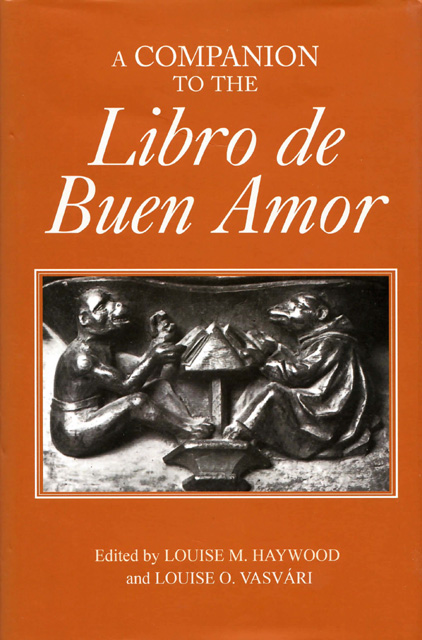Book contents
The Novelness of the Libro de Buen Amor
Published online by Cambridge University Press: 10 May 2023
Summary
The Libro de Buen Amor belongs to those perverse narratives of early vernacular literary production that satirize or mix generic conventions and thus do not fit conventional nineteenth-century generic designations to which surveys of literature still tend to adhere. In his 1992 edition of the Libro Alberto Blecua succinctly summarizes over a half a century of scholarly opinions regarding the structure and genre of this very complex work, on initial reading apparently a kind of miscellany of episodes, which has been dubbed everything from a moralizing narrative poem to a cancionero or a goliardesque compendium. But Blecua, like his predecessors, still drawing on these same conventional generic categories, can conclude no more than that the work is ‘una anomalía literaria’, a work of great originality, but whose literary tradition, motives of composition, and literary coordinates are ultimately unknowable to us, lost in a nebulous tradition (1992: xxv). That this is a problem of criticism rather than some sort of generic confusion within the work itself is evident when we consider that other works, both earlier and later than the Libro, have been described in similar terms. Blecua does add the helpful insight that this generic problem is a creation of the medieval scholastic system, into which virtually all medieval literary traditions flow, but he does not develop this idea further.
In this chapter I shall propose, rather, that the Libro exemplifies the extremely heterogeneous nature of some medieval texts, characterized by permeability of generic boundaries and intertextual relationships that cross discrete genres. Although such works tend to be marginalized as unclassifiable, they are structurally and generically fully retrievable within the context of the prehistory of the novel as examples of novelized discourse. With this aim, I shall first attempt to outline briefly such a prehistory of the novel, proposing a counter-model that seeks to discredit traditional, received models of literary history, primary among them György Lukács’s Theory of the Novel (first publ. 1922), and Ian Watt’s The Rise of the Novel (1957). Then I shall apply this model to the Libro, with the aim of showing that work’s ‘novelness’ in two senses of the term, as a novel, original work, and as a part of the prehistory of the novel.
- Type
- Chapter
- Information
- A Companion to the Libro de Buen Amor , pp. 165 - 182Publisher: Boydell & BrewerPrint publication year: 2004
- 1
- Cited by

